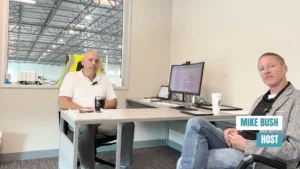Will A Car Make Us Rethink City Design?
If people are still waiting for autonomous vehicles to appear on our roads, they are already behind. The fact is self-driving cars are already here, being tried out in a number of cities around the United States—and around the world. Many cities are allowing auto companies to try out driverless cars because of the many potential benefits that can come with their use, from reduced traffic accidents to fewer traffic problems.
For riders, these vehicles are going to completely transform transportation. Users will be able to read, relax, or get more work done during their commute. The stresses of a daily drive, and the variables that come with it like traffic and accidents, will be mitigated if not eliminated in years to come.
Cities are looking forward to the use of autonomous vehicles in a number of ways. They are not just passively hoping everything works out, but are looking at the changes that will have to be made in infrastructure as well. While there are certainly vehicles being developed which can drive on roads as currently designed, the fact of the matter is that driverless cars will be even more efficient and safer if sensors are also placed alongside the roads.
These sensors will not only help these cars navigate the roads and traffic, but respond to problems ahead, including changing traffic patterns, and provide data that will help with those predictions for other vehicles and help cities understand what infrastructure changes are needed to improve traffic. In a fully integrated system, the traffic lights would be more intelligent regarding when to turn green or provide a protected left turn.
Cities will be affected by this technology in more ways than just infrastructure. According to the National League of Cities, “This new technology will have practical applications in transportation, housing, land use, parcel delivery, freight and more.”
The organization also points out that cities will likely lose revenue on traffic citations and small roadside infractions. Cities do, after all, make a lot of money from traffic violations, and it is unlikely that autonomous vehicles will be breaking the rules of the road. At the same time, this also suggests that the demand for police officers will be reduced, or at the very least their resources will be reassigned to help stop violent crimes. In this way, it is entirely possible that the more of these vehicles seen on the road, the less crime will be seen in cities.
Cities are going to have to become smart cities just to handle the certainty of driverless cars arriving in greater numbers on the roads. There will be a lot of benefits to the presence of the technology, from less wasted time to fewer accidents and less traffic congestion. The quicker and more efficiently people can move around in dense urban areas, the more change will arise, and the less air pollution there will be. Whatever the short-term difficulties are in this transition, it seems clear the end-game will make it worth the temporary troubles.
For the latest news, videos, and podcasts in the Transportation Industry, be sure to subscribe to our industry publication.
Follow us on social media for the latest updates in B2B!
Twitter – @TransportMKSL
Facebook – facebook.com/marketscale
LinkedIn – linkedin.com/company/marketscale








